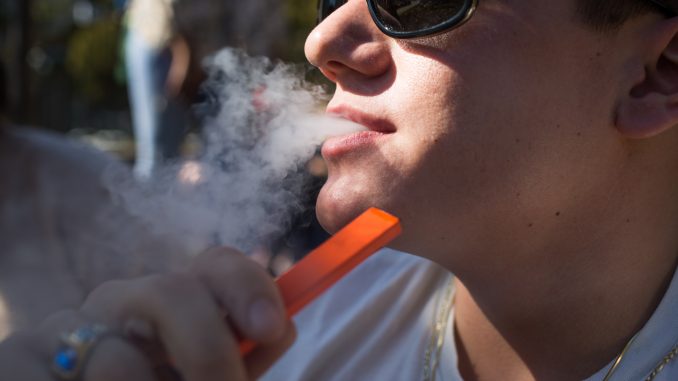
As local and state governments across the United States move to tax or discourage vaping, recently released research co-authored by Catherine Maclean, a Temple University economics professor, suggests that raising taxes on e-cigarettes may lead people to buy more cigarettes.
Maclean, along with five other researchers from across the country, analyzed the effects of e-cigarette taxes on its prices and sales as well as the sales of other tobacco products in eight states and two large counties in a study published in the National Bureau Of Economic Research in January.
The research is part of a five-year grant that Maclean received with Michael Pesko, an economics professor at Georgia State University, and Charles Courtemanche, an economics professor from the University of Kentucky, from the National Institute of Health to study the effects of e-cigarette regulations, Maclean said.
The study comes at a time when local, state and national legislators are passing a slew of laws to restrict e-cigarette sales in response to an increase in injuries and deaths linked to their use.
As of Feb. 18, a total of 2,807 hospitalized cases or deaths associated with e-cigarette use have been reported to the Centers for Disease Control and Prevention. Sixty-eight deaths have been confirmed, the CDC reported.
The U.S. House of Representatives passed a bill to ban manufacturing and sales of flavored e-cigarette and tobacco products on Feb. 28, the New York Times reported.
In November 2019, Pennsylvania raised the minimum age required to purchase tobacco to 21 and expanded the definition of a tobacco product to include e-cigarettes, according to a release from Gov. Tom Wolf’s office.
Pennsylvania, Delaware, New Jersey and West Virginia levy an excise tax on vapor products, according to the Tax Foundation, a tax policy research center. Pennsylvania taxes 40 percent of the product price.
Maclean’s research found that when the price of a vape product rises, consumers buy the product less and buy more cigarettes, she said.
“This is a well-established fact within economics in the context of economic substitutes,” Maclean said. “Basically, consumers view the products as alternative sources of nicotine.”
Both state and federal lawmakers may be unaware of the unintended consequence of increasing tobacco product sales, she added.
“I think they consider the products in isolation,” Maclean said. “For instance, a policy maker wants to reduce vaping and thus decides to tax the product, but does not think about what the tax might have on smoking outcomes.”
Beginning in July 2019, Temple implemented a new tobacco-free campus policy that banned the consumption of combustible tobacco, including e-cigarettes, on campus, The Temple News reported.
State Rep. Malcolm Kenyatta, whose district encompasses Main Campus, said he is in favor of restrictions on vaping, including a tax on vape products.
“I want to see folks using less tobacco products period, and vaping has not held up to how it was promoted,” Kenyatta said. “And it worries me deeply that they are explicitly going after our young people with bubblegum flavors, with all these different things that are not for 30, 40 year olds, that are for our kids.”
Neha Ghaghada, a junior biology major, said she has never seen people who vape switch to smoking cigarettes.
To stop young people from vaping, society should educate children about its dangers at a young age similar to how they do with cigarettes, Ghaghada added.
“If they just educate people on vapes, then kids would be more willing to be like, ‘yeah, we’re just not gonna start vaping,’” she said.



Be the first to comment